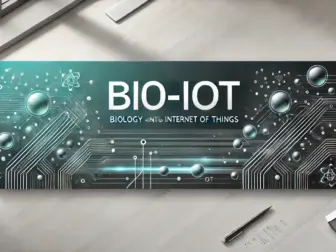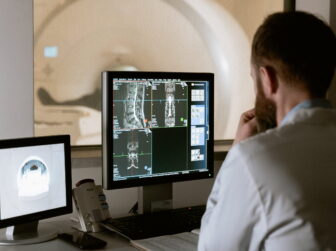Tag - Medical IoT
Blog, Industrial Solutions , December 20, 2024 , Bio-IoT, biological sensors, health monitoring, healthcare technology, Medical IoT, precision medicine
Blog , November 21, 2023 , internet of things, IoMT, Medical Internet of Things, Medical IoT, smart hospital
Revolutionizing Healthcare with Medical IoT
Medical Internet of Things (IoT) is transforming the healthcare industry by providing innovative solutions that improve patient care, streamline processes, and increase efficiency. The integration of IoT devices and technology in healthcare has revolutionized the way medical professionals deliver care and patients manage their health.
One of the key benefits of Medical IoT is remote patient monitoring. With the use of wearable devices, sensors, and mobile apps, healthcare providers can track patients’ vital signs, medication adherence, and overall health status in real-time. This allows for early detection of health issues, prevention of complications, and personalized treatment plans. Patients can also take a more active role in managing their health by monitoring their progress and communicating with their healthcare team.
Another advantage of Medical IoT is the automation of routine tasks in healthcare facilities. IoT devices can be used to track medical equipment, manage inventory, and monitor environmental conditions to ensure compliance with regulations and standards. This automation reduces the burden on healthcare staff, improves operational efficiency, and minimizes errors in patient care.
Furthermore, Medical IoT enables telemedicine and virtual consultations, allowing patients to access healthcare services remotely. This is particularly beneficial for individuals in rural or underserved areas who may have limited access to healthcare facilities. Virtual consultations also reduce the need for in-person visits, saving time and resources for both patients and healthcare providers.
In addition, Medical IoT plays a crucial role in improving medication management and adherence. Smart pill dispensers, medication reminders, and tracking devices help patients take their medications on time and in the correct dosage. This helps reduce medication errors, prevent adverse drug reactions, and improve treatment outcomes.
Moreover, Medical IoT has the potential to enhance clinical research and data analytics in healthcare. By collecting and analyzing real-time data from IoT devices, researchers can gain insights into disease patterns, treatment effectiveness, and patient outcomes. This data-driven approach allows for more personalized and evidence-based decision-making in healthcare.
However, the widespread adoption of Medical IoT also presents challenges such as data security and privacy concerns. Healthcare organizations must ensure that patient data collected by IoT devices is protected against cyber threats and unauthorized access. Compliance with regulations such as HIPAA is essential to safeguard patient information and maintain trust in the healthcare system.
In conclusion, Medical IoT is revolutionizing healthcare by providing innovative solutions that improve patient care, streamline processes, and increase efficiency. With the integration of IoT devices and technology, healthcare professionals can deliver personalized care, patients can take a more active role in managing their health, and healthcare facilities can optimize their operations. While challenges exist, the benefits of Medical IoT far outweigh the risks, making it a promising technology for the future of healthcare.

